Riding a motorbike is an exciting and fun way to explore the open roads of Indiana. However, with great freedom comes great responsibility; riders must take every precaution they can to ensure their safety while on the road. This includes wearing protective headgear when operating a motorcycle or moped. But does Indiana have a helmet law?
Table of Contents
What Is Indiana’s Helmet Law?
In Indiana, all riders operating a motorcycle or moped must wear an approved helmet. Those under 18 years of age must also wear eye protection when riding. The law requires that these helmets meet certain standards, be properly secured to the head with a chin strap, and that the visor remain closed while in use. Failure to do so can result in a fine. [1]
Indiana’s General Rule for Motorcycle Helmet Use
Indiana has a law that requires all motorcyclists to wear helmets when riding on roads within the state. This applies to all riders regardless of age, experience level, or type of bike. The helmet must meet certain safety requirements and have a face shield, windscreen, chin strap, and other protective gear in order to be considered legal.
The state has also established a few other specific requirements for helmets. The helmet must be secured on the rider’s head with straps and meet the following specifications:
- It must have a hard outer shell made of either fiberglass, Kevlar, or similar material
- The inside must contain energy absorbing foam liners
- The chin strap must be equipped with a quick release buckle
- It must have either a built-in face shield or eyeglasses/goggles that meet the standards set by the Department of Transportation. [2]
Are There Exceptions to Indiana’s Helmet Law?
Yes, there are exceptions to Indiana’s helmet law. If you are over the age of 18 and have held a motorcycle license for at least one year, you are not required to wear a helmet while operating or riding as a passenger on a motorcycle. Additionally, if you are part of an organized parade or exhibition in which each motorcyclist is wearing a helmet, you may be exempt from wearing a helmet. [2]
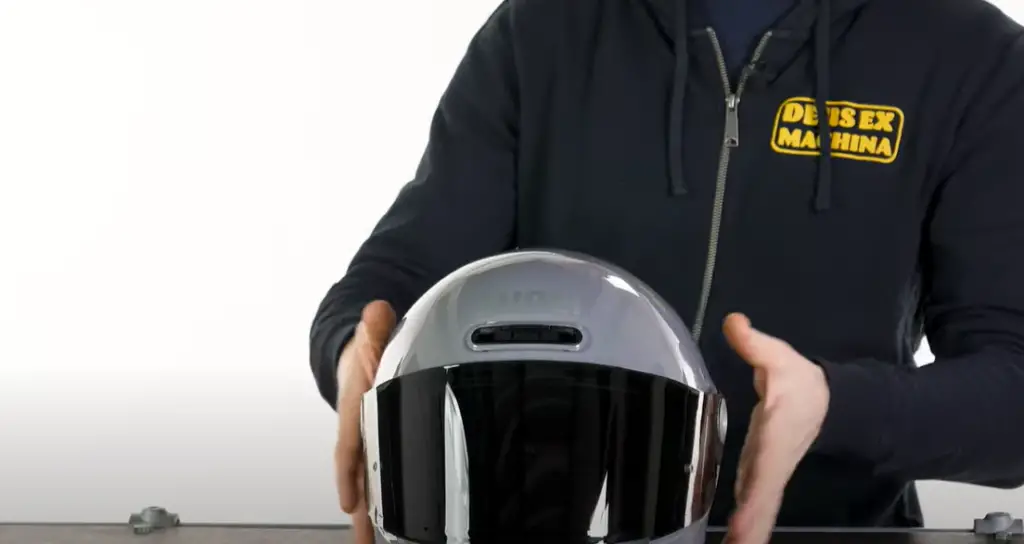
Complying with Indiana’s Insurance Exception
In Indiana, there is an insurance exception to the state’s motorcycle helmet law. According to this law, riders are not required to wear helmets if they have medical coverage that meets certain requirements:
- At least $10,000 in medical payments for injuries related to operating a motor vehicle;
- At least $25,000 in coverage per person and $50,000 per accident for bodily injury liability;
- At least $10,000 in property damage liability.
Riders who meet these requirements must carry proof of insurance with them while riding and present it if asked to do so by a law enforcement officer. [2]
When Did Indiana Repeal Its Helmet Law?
Indiana repealed its helmet law in 1975, which made it legal for motorcyclists over the age of 18 to ride without wearing a helmet. Since then, Indiana has not implemented any new legislation making helmets mandatory. [3]
Is Indiana’s Helmet Law Constitutional?
The Indiana State Constitution protects the right of citizens to operate motor vehicles on public roads, but it does not specifically address helmet laws. However, a 2007 case involving an Indiana man who was pulled over for failing to wear a motorcycle helmet established that state law enforcement officers are allowed to enforce such statutes. This ruling has remained unchallenged ever since.
The Indiana Supreme Court reasoned that helmet laws are a reasonable exercise of the police power given to state governments in order to protect public safety, and thus do not violate the Indiana State Constitution. This reasoning was supported by the state’s own statutes, which provided that any person riding a motorcycle shall wear “protective headgear,” unless they had an exemption. [3]
Is Eye Protection Required for Motorcyclists in Indiana?
Yes. Motorcyclists in Indiana are required to wear protective eyewear while operating their vehicles. This includes sunglasses, goggles, or face shields that provide sufficient protection to protect the eyes from flying objects and wind. All helmets must also be equipped with a face shield that meets the standards of the American National Standards Institute (ANSI). Additionally, all eye protection must be marked with a “Z87″ or “M”—two symbols that indicate the eyewear meets ANSI standards. [3]
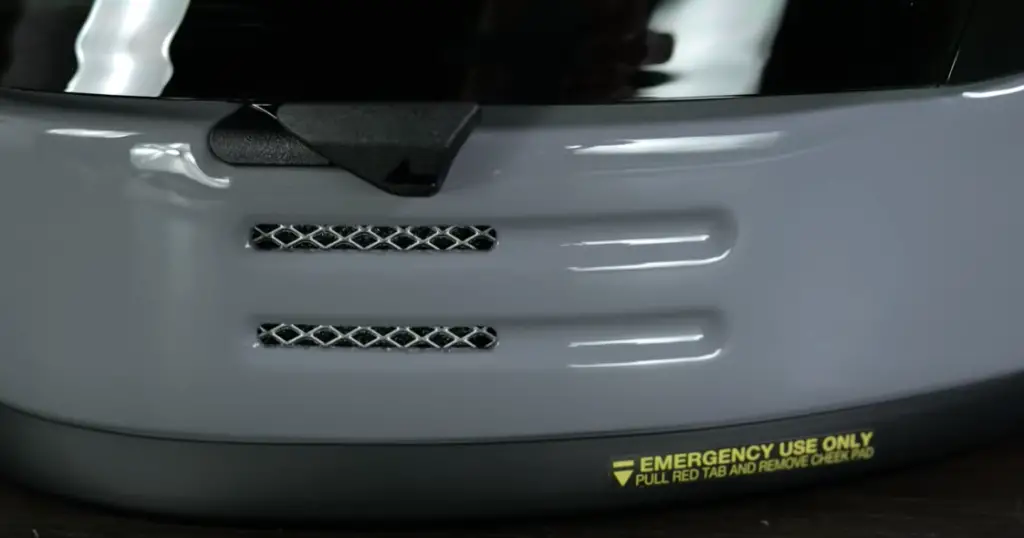
What Is the Penalty for Operating a Without a Helmet in Indiana?
If you are caught riding a motorcycle without a helmet in Indiana, you will be subject to fines and court costs. The minimum penalty is $25 for operating a motorcycle without wearing protective headgear. Additionally, the court can also impose up to two additional days of imprisonment for each infraction that occurred within the last six months. A judge may also suspend or revoke your motorcycle license, and order you to take a safety course. [1]
Indiana Helmet Laws and Car Accident Compensation
In Indiana, a motorcyclist is required to wear a helmet while operating or riding on a motorcycle. This law applies to all operators and passengers of any age. However, it should be noted that if an individual has health insurance that covers at least $10,000 in medical expenses related to head injuries from the use of a motorcycle helmet, then they are exempt from the law. [1]
Comparative Negligence and Motorcycle Accidents
In Indiana, the law of comparative negligence is used to determine liability for motorcycle accidents. Comparative negligence means that if you are injured in a motorcycle accident and it is not entirely your fault, then you may still be able to recover damages from the other driver. In order for this to occur, however, your total damages must exceed 50% of the total fault attributed to you.
For example, if two drivers are involved in a motorcycle accident, and one driver is found to be 40% at fault while the other driver is found to be 60% at fault, then the 40% at-fault driver could still recover damages from the other driver – as long as their total damages exceed 60%. [1]
Not Wearing a Helmet and Claiming Compensation
If you have been involved in a motorcycle accident in Indiana and were not wearing a helmet, you may still be eligible for compensation. The state’s comparative negligence laws allow injured riders to collect damages if they can prove that the other party was mostly responsible for the accident.
It is important to remember that even if you are not required to wear a helmet, not doing so can increase the amount of time needed for recovery and may reduce your compensation claims. Insurance companies use any information they have to limit their payouts. Therefore, if you were not wearing a helmet when you had an accident, it is likely that the insurance company will try to use this as proof that you were negligent and partially responsible for the accident. [1]
Do Motorcycle Helmets Save Lives?
The short answer is yes, motorcycle helmets save lives. In fact, according to the Centers for Disease Control and Prevention (CDC), helmets are estimated to be 37 percent effective in preventing fatal injuries among motorcyclists in crashes. Furthermore, they also reduce the risk of nonfatal head injuries by 69 percent. [3]
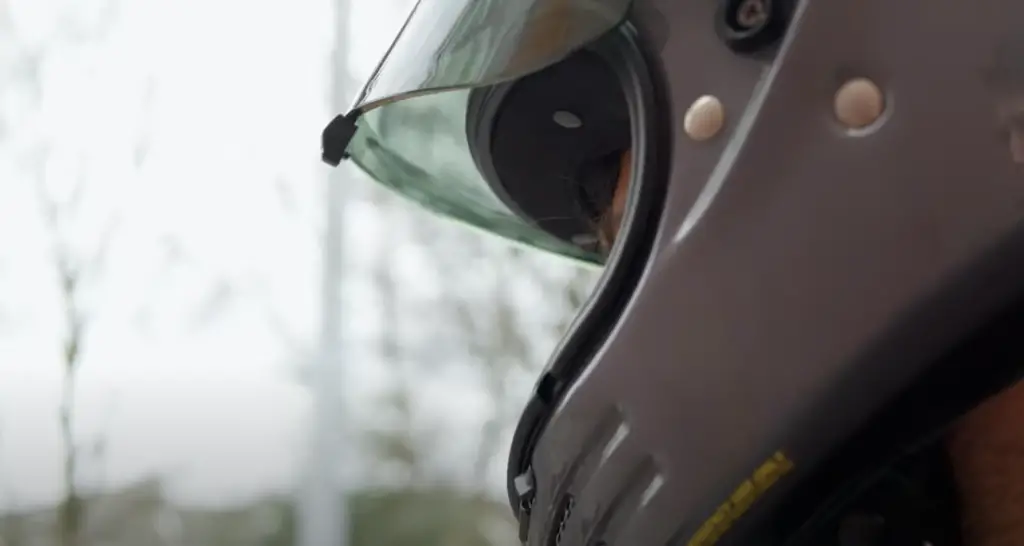
Reasons to Always Wear a Helmet
It’s always best to stay safe and wear a helmet when you’re out on the open road. There are several benefits to wearing a motorcycle helmet, including:
- Increased visibility: A brightly colored or reflective helmet can help other drivers see you better on the road, reducing your risk of an accident.
- Improved protection: Wearing a helmet can help protect your head and brain in the event of a crash.
- Reduced strain: Motorcycles produce more wind noise than cars, so wearing a helmet can reduce the amount of sound that reaches your ears.
- Improved comfort: Helmets are designed to provide cushioning and ventilation, helping you stay comfortable during long rides. [1]
Enforcement of Indiana’s Helmet Law
Indiana’s helmet law is enforced by local law enforcement. Helmets must meet the standards of the U.S. Department of Transportation’s Federal Motor Vehicle Safety Standards (FMVSS). Any rider found not wearing a helmet can be given a traffic citation and may fines or even jail time if convicted. [3]
What You Need to Know About Helmet Laws for Children
When it comes to kids and biking, safety is top priority. As bicycle helmet laws are becoming increasingly common in the United States, it’s important for parents to make sure their children are wearing a helmet when they ride their bicycles.
In Indiana, the official recommendation for children under the age of 16 is that they should wear a bicycle helmet when riding. The Indiana Department of Transportation notes that helmets can reduce the risk of head injury by up to 85% in the event of an accident. [2]
Vehicles to Which the Motorcycle Helmet Laws Do Not Apply
In Indiana, motorcycle helmet laws do not apply to all vehicles. In particular, those riding in a three-wheeled vehicle with an enclosed cab and seatbelts are exempted from the law. Additionally, those on mopeds or bicycles are also exempt from wearing helmets.
For those motorcyclists who choose to ride without a helmet, it is important to keep in mind that doing so can be incredibly dangerous. Helmets are designed to absorb some of the impact from a collision or crash and provide riders with an added layer of protection. Therefore, motorcyclists should still consider wearing a helmet even if they are not required by law to do so. [1]
What Is The Difference Between Certified And Non-Certified Helmets?
When it comes to motorcycle helmets, there is a big difference between certified and non-certified helmets. A certified helmet meets the Department of Transportation’s (DOT) Federal Motor Vehicle Safety Standard (FMVSS) 218. This standard sets minimum performance standards for the impact protection that a helmet must provide in order to be considered safe.
Non-certified helmets, on the other hand, may look similar to certified helmets but are not subject to the same standards as their certified counterparts. Non-certified helmets are typically made with lower quality materials and do not have to meet any performance standards for safety. [2]
Who Is Liable In A Motorcycle Accident?
In Indiana, a motorcycle accident is like any other car accident in terms of who is liable for the damages. The person responsible for the accident can be held liable for medical expenses, property damage, and pain and suffering if the other party involved can prove negligence or recklessness. In some cases, both parties can be at fault; in which case, their liability would be determined based on their respective levels of fault. [3]
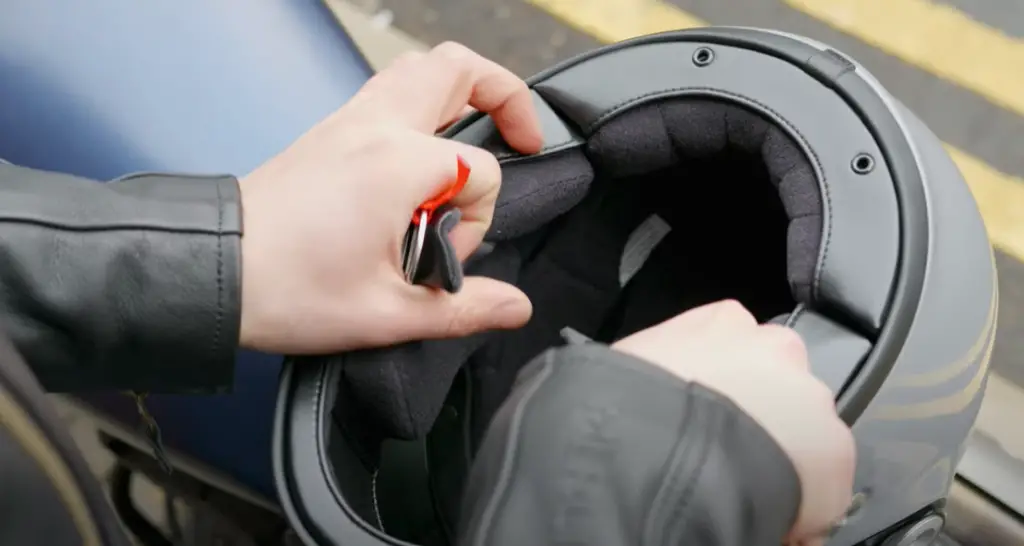
Is Choosing Not To Wear A Helmet Considered Negligence?
No, choosing not to wear a helmet is not automatically considered to be negligence in Indiana. However, if you’re involved in an accident on a motorcycle and it can be proven that your failure to wear a helmet was a contributing factor in the injuries that you sustained, then this could be grounds for finding you negligent. Therefore, even though helmet use is not mandatory in Indiana, it’s still highly advisable to wear one for your own sake. [1]
Are Helmets Effective In Preventing Injuries?
The short answer is yes. Helmets are effective in reducing the risk of head injury and death in motorcycle crashes. A study from the National Highway Traffic Safety Administration (NHTSA) found that helmets reduce the likelihood of a fatal head injury by 37%.
If you want to maximize your protection, it’s important to choose the right type of helmet for your riding style. A full-face helmet provides the most protection, as it covers both your head and face. Other types of helmets such as half-helmets or open-face helmets provide less protection but can expose your face, allowing you to have better visibility while riding. [3]
Other Ways To Prevent Motorcycle Injuries
In addition to wearing a helmet, there are other steps you can take to prevent motorcycle injuries.
Make sure your bike is in good condition and properly maintained. Check the brakes, tires, fluid levels and battery before each ride. Carry an emergency repair kit for minor repairs on the go.
Take a safety course. The Motorcycle Safety Foundation offers a variety of courses, from basic riding to advanced maneuvers. It’s also important to stay alert while riding; scan the roadway ahead and be aware of other drivers.
Finally, always wear protective gear. In addition to a helmet, consider adding leather, armored or reinforced clothing to further protect yourself in the event of an accident. [2]
FAQ
Can you ride without a helmet in Indiana?
The short answer is no, you cannot ride without a helmet in Indiana. According to the Bicycle Helmet Safety Institute, all riders under the age of 18 must wear a helmet while cycling. It’s important to note that cyclists aged 18 and over don’t have to follow this law—but wearing a helmet is strongly encouraged for adults as well as children.
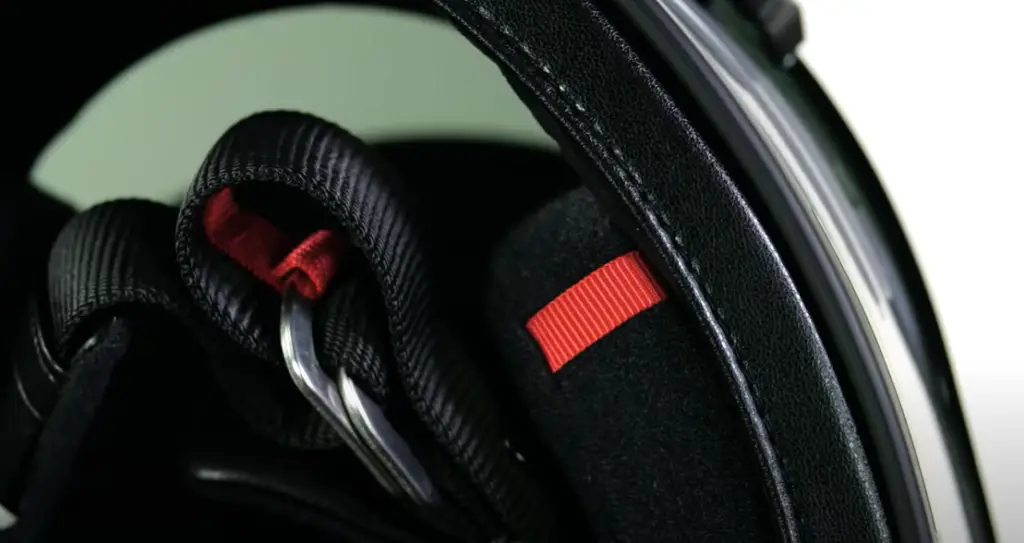
Are bike helmets required in Indiana?
Yes, bike helmets are required for all cyclists aged 18 and under in Indiana. Parents of children aged 17 and younger can be fined up to $25 for not enforcing this law. Additionally, the regulations state that each helmet must meet or exceed standards issued by the U.S. Consumer Product Safety Commission (CPSC).
Which US states have no helmet law?
Currently, 20 US states have no helmet law. These include Alabama, Alaska, Arizona, Arkansas, Colorado, Idaho, Iowa, Kansas, Kentucky, Louisiana, Maine, Mississippi, Montana, Nevada, New Hampshire, North Dakota Oklahoma South Carolina South Dakota and Wyoming. It’s important to remember that even if a state does not have a helmet law, it is still important to wear a helmet while cycling.
What is the helmet rule in Indiana?
In Indiana, all cyclists aged 18 and under are required to wear a helmet while cycling. The helmet must meet or exceed the standards issued by the U.S. Consumer Product Safety Commission (CPSC). Additionally, parents of children aged 17 and younger can be fined up to $25 for not enforcing this law.
Useful Video: Indiana’s Motorcycle Helmet Law
Conclusion
In conclusion, Indiana does have a helmet law that requires all motorcyclists to wear helmets when riding. The law also provides for certain exemptions for riders who are over the age of 18 and meet other criteria. Riders should always wear protective headgear regardless of their age or exemption status, as this can significantly reduce the risk of serious injury in the event of a crash. For more information and advice on how to stay safe while riding, riders should consult their local Department of Motor Vehicles for the most up-to-date laws and regulations. Safe riding!
References:
- https://www.truittlawoffices.com/blog/are-you-required-to-wear-a-motorcycle-helmet-in-indiana/
- https://www.sevenishlaw.com/faqs/do-you-need-to-wear-a-helmet-in-indiana/
- https://www.nleelaw.com/motorcycle-laws-indiana/

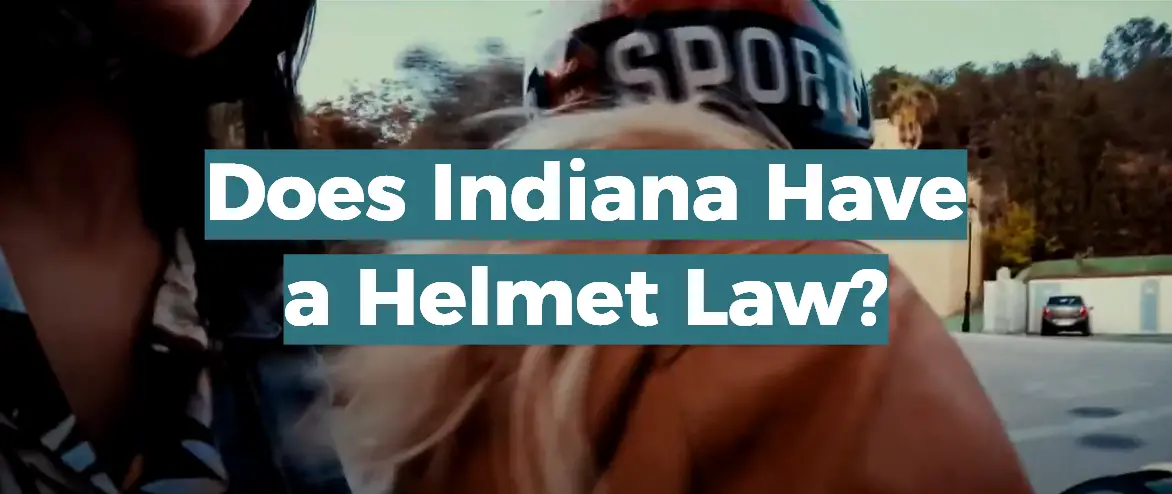
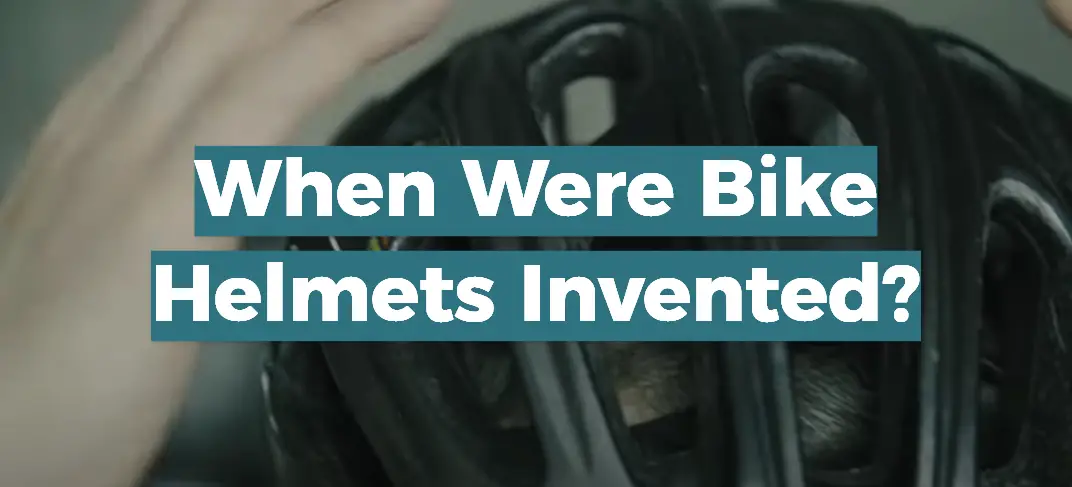
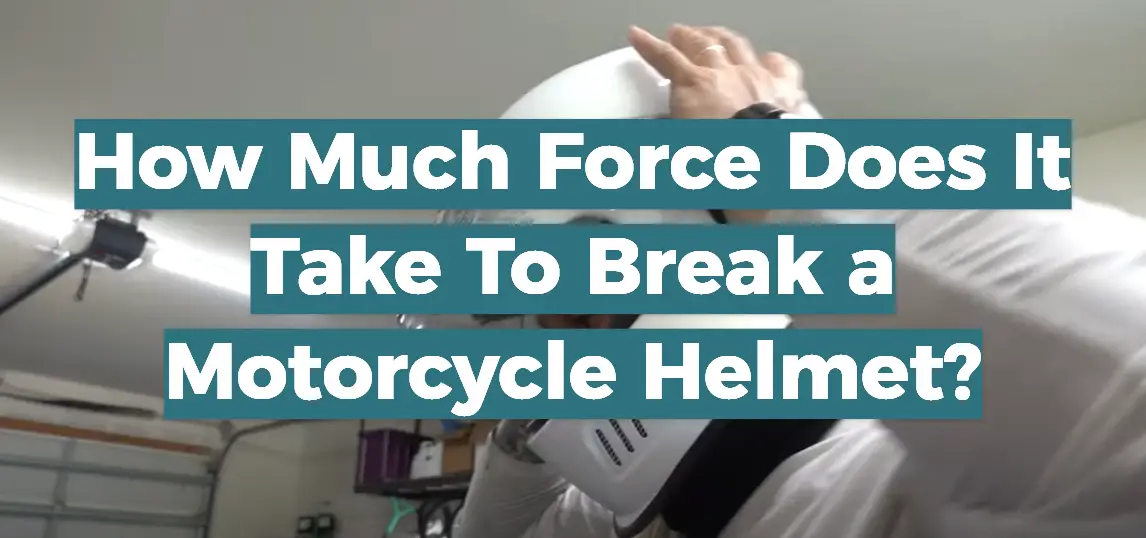

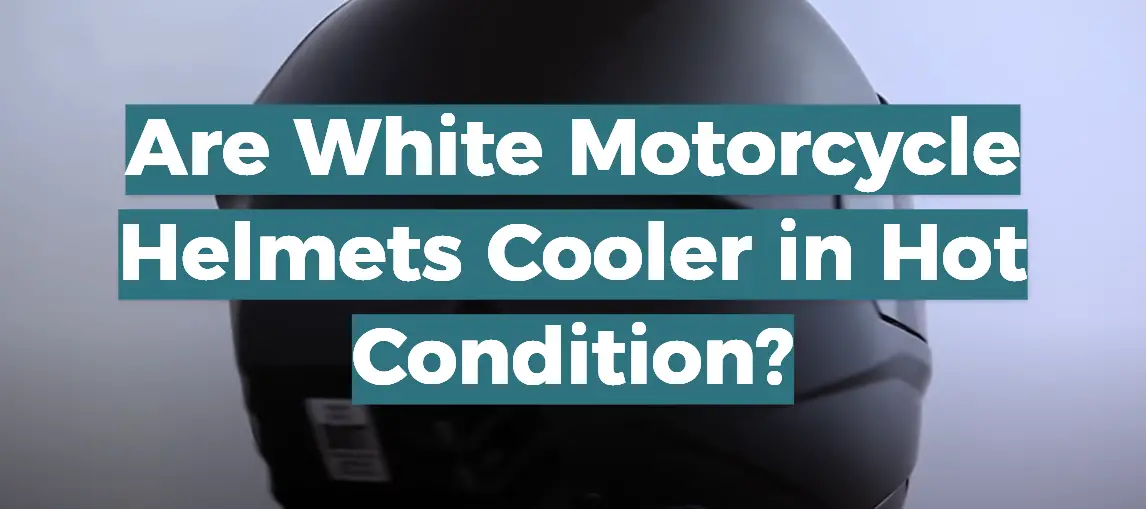
Leave a Reply